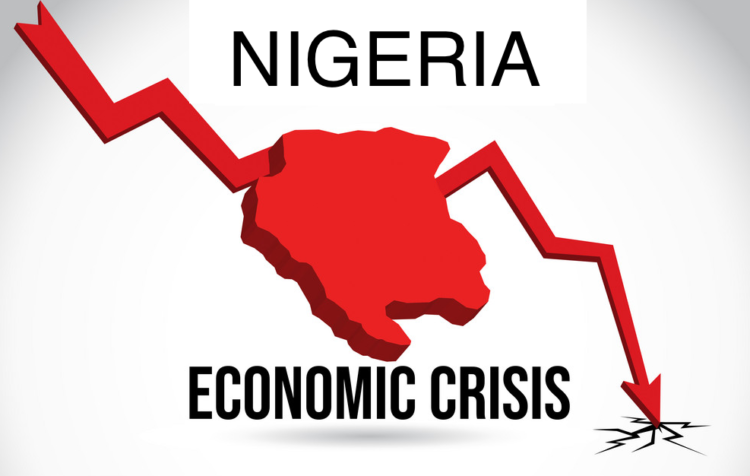Surviving financially in a collapsing economy like Nigeria can be challenging, but with careful planning and smart decision-making, you can increase your chances of weathering the storm. Here are some detailed guidelines to help you navigate through difficult times:
Create a budget: Start by assessing your income and expenses. Create a detailed budget that covers all your essential expenses such as food, housing, utilities, and transportation. Prioritize your needs over wants and allocate your funds accordingly.
Cut unnecessary expenses: Identify and eliminate any unnecessary expenses from your budget. This might include dining out, entertainment subscriptions, or non-essential purchases. Be frugal and focus on saving as much as possible.
Start a side business: .Relying on a single source of income can be risky during an economic collapse. Explore opportunities to diversify your income by starting a side business, freelancing, or taking up part-time work. Multiple income streams can provide stability and additional financial support. Consider starting a small business that aligns with your skills, interests, and market demand. It could be a product or service-based business that you can operate on a part-time basis. Starting a side business can provide an additional income stream and potentially grow into a full-time venture.
Be cautious of scams: Unfortunately, economic crises attract scammers looking to exploit vulnerable individuals. Be vigilant and skeptical of any get-rich-quick schemes or investment opportunities that promise unrealistic returns. Research thoroughly, seek advice from trusted sources, and never invest in something you don’t fully understand.
Utilize social media for business: Leverage social media platforms like Facebook, Instagram, Twitter, and LinkedIn to promote your business. Establish an online presence, engage with your target audience, and utilize cost-effective advertising options provided by these platforms. Social media can help you reach a broader customer base without significant financial investments.
Help grow a family business: If you have a family business, actively contribute to its growth and development. Collaborate with family members to identify new market opportunities, streamline operations, improve marketing strategies, and explore innovative ways to stay competitive. Working together can increase your chances of success during challenging times.
Seek knowledge through free online programs: Take advantage of the numerous free online courses, webinars, and educational resources available on platforms like Coursera, edX, Khan Academy, and YouTube. Acquiring new knowledge and skills can enhance your professional value, open up new opportunities, and improve your financial prospects.
Take Public Transport or Walk if you can: Public transport is generally cheaper than driving. Look for buses, shared taxis, or other forms of public transport that can take you to your destination. If your destination is within walking or biking distance, consider walking or biking instead of using a car. This is not only cheaper but also a great way to stay active and improve your health.
Seek alternative income streams: In addition to starting a side business, explore other ways to generate income. This could include renting out a spare room on platforms like Airbnb, offering freelance services in your area of expertise, or monetizing a hobby or skill you possess. Look for opportunities that align with your abilities and market demand.
Build an emergency fund: Set aside a portion of your income to build an emergency fund. This fund will provide a safety net during tough times and help you avoid going into debt. Aim to save at least 3-6 months’ worth of living expenses.
Invest wisely: Although investing during an economic downturn may seem risky, it can also present opportunities for growth. Consider consulting with a financial advisor or doing thorough research to identify potentially lucrative investment options. However, be cautious and avoid high-risk investments that could lead to further financial instability.
Prioritize debt management: If you have outstanding debts, make it a priority to manage them effectively. Focus on paying off high-interest debts first, as they can accumulate quickly and become a financial burden. Negotiate with creditors for lower interest rates or explore debt consolidation options.
Explore alternative living arrangements: Housing expenses can be a significant portion of your budget. Consider downsizing your living space or exploring more affordable housing options. Renting out a spare room or sharing accommodation with others can help reduce costs. But be security conscious.
Develop new skills: Invest in your personal and professional development by acquiring new skills. This can improve your employability and potentially lead to better job opportunities or higher-paying roles. Online courses, workshops, and certifications can be cost-effective ways to enhance your skill set.
Preserve your assets: Protect your existing assets by ensuring they are properly maintained and insured. This includes your home, car, and any valuable possessions. Regular maintenance can help avoid costly repairs in the long run.
Stay informed and adaptable: Keep yourself updated on the economic situation and any government policies or regulations changes. Adapt your financial strategies accordingly to mitigate risks and take advantage of opportunities that arise.
Network and collaborate: Building strong relationships with like-minded individuals can be beneficial during challenging times. Network within your community or industry to find support, share resources, and potentially discover new opportunities.
Take care of your mental and physical well-being: Financial stress can affect your mental and physical health. Practice self-care, exercise regularly, and seek emotional support from friends, family, or support groups. Maintaining a positive mindset and good health can help you navigate difficult situations more effectively.
Embrace a frugal lifestyle: Adopting a frugal lifestyle can significantly impact your financial stability. Find ways to save money in your daily life, such as cooking at home instead of eating out, using public transportation or carpooling instead of owning a car, and shopping for essentials in bulk or during sales. Small savings can add up over time and provide you with more financial flexibility.
Explore government assistance programs: Research and identify government assistance programs or grants that may be available during an economic crisis. These programs are designed to support individuals and businesses facing financial hardships. Check with local government offices, financial institutions, and relevant agencies to explore potential options.
Build a strong professional network: Networking is crucial during difficult economic times. Attend industry events, join professional organizations, and connect with individuals who can provide mentorship, guidance, or potential job opportunities. Building a strong network can give you access to valuable resources, information, and support.
Remember, adapting to an economic collapse requires resilience, creativity, and a willingness to explore new possibilities. Stay proactive, remain open to learning, and be prepared to pivot your strategies as circumstances change.


















